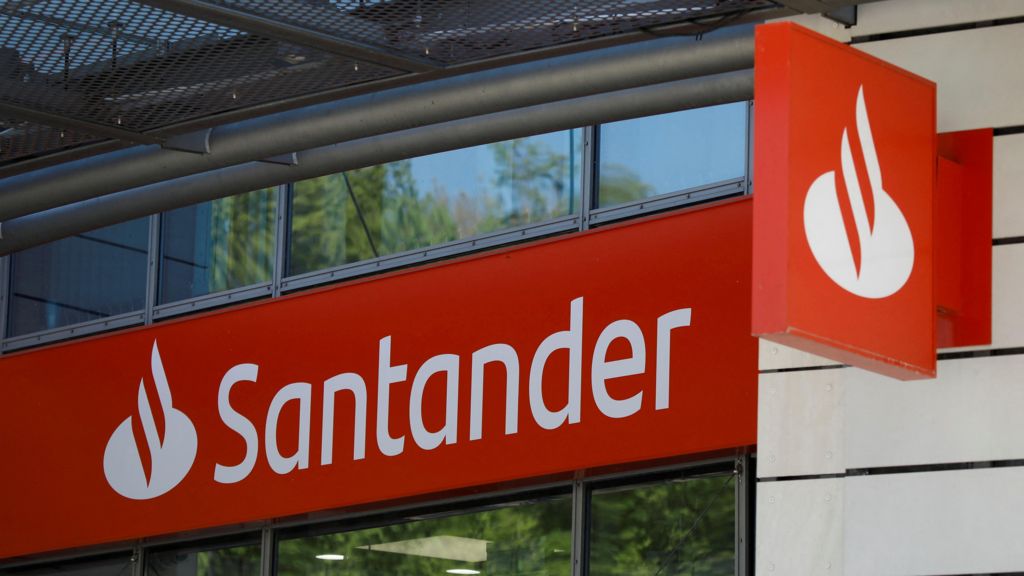- FTSE 100 falls 70 points to 8184
- Royal Mail owner IDS says 'yes' to formal offer from Kretinsky
- Ocado and St James's Place likely to be relegated from FTSE 100
4.26pm: Anglo suitor walks away
Anglo American shares have dropped 4% after suitor BHP walked away, following the FTSE 100-listed group turning down its request for more time... read more.
4.04pm: Stocks cower from big bond bully
If you're wondering why stock markets are down everywhere, the reason is they are recoiling by the big bully of the global financial system: the bond market.
Rising bond yields are putting downside pressure on stock indices, say analysts and traders.
"Asian, European and US stock indices slid on Wednesday following slightly hawkish Fed commentary and a disappointing bond auction on Tuesday," says market analyst Axel Rudolph at IG.
Samuel Springett, trading floor manager at Accendo says: "The markets are a bit lacklustre ahead of the US GDP data tomorrow. Bond yields have hit four week highs which is causing the FTSE to sell off today.
"Rate cut worries are also resurfacing after the stronger than expected US consumer confidence data we had yesterday."
Rapidly rising bond yields are doing the damage, with the US 2-year yield nearly hit the 5% mark and the 10-year nearly a four-week high around 4.60%, while the German 10-year yield touched its November 2023 peak at 2.66%.
Partly this is to do with central bank expectations, which are again being recalibrated due to inflation and other data like consumer confidence.
Ahead of Friday's big US PCE inflation gauge, Australian inflation came in stronger-than-expected overnight and hit a five-month high, practically ruling out a RBA rate cut this year, with German inflation rising, although in line with expectations.
3.50pm: Blue chip fallers and risers
Biggest fallers on the FTSE are National Grid’s (two options currently after the rights issue) and relegation candidate Ocado.
Anglo American is down as its talks with BHP teeter. Other miners, likes Antofagasta, Rio Tinto and Glencore are down too.
RS Group PLC (LSE:RS1) is down, with broker Liberum downgrading to ‘hold’ from ‘buy’ and reducing its target price to 800p on the back of a 13% cut to forecast profits after last week’s results.
“We have not lost faith in the longer-term market opportunity and acknowledge that capitulation at what may be the ‘kitchen sink’ moment may be dangerous,” analysts said, predicting a “multi-year fix”.
There are only 14 risers in the index, top of which is insurer Beazley PLC (LSE:BEZ), followed by precious metals miner Fresnillo PLC (LSE:FRES), which jumped after RBC Capital Markets upgraded the stock to ‘outperform’.
Retailers are also higher, with Primark owner AB Foods up 1%, followed by Next and Frasers.
3.16pm: More M&A news
The board of John Wood Group PLC (LSE:WG.) said it is "evaluating" a new takeover bid from Sidara, its Dubai-based rival, at 230p per share.
Dar Al-Handasah Consultants Shair and Partners, known as Sidara, has made what it is calling a "fourth and final" proposed offer, which the London-listed outfit says is unsolicited, preliminary and conditional.
The directors say they will make an announcement on their response shortly.
2.57pm: Political angles
After Royal Mail owner IDS agreed to a formal offer from Daniel Kretinsky’s EP Group earlier, the deal is far from signed, sealed and delivered, with significant political roadblocks to overcome, my colleague Billy Farringdon write.
Both major parties have raised concerns over the takeover, though the Tories have made some supportive sounds.
But with Labour the overwhelming favourite to win the upcoming election, a political showdown with a Keir Starmer-fronted, union-aligned government is in store.
Elsewhere, water company shares have improved, with United Utilities Group PLC (LSE:UU.) top of the Footsie leaderboard, on reports that the industry regulator is keen for debt-laden utilities to face smaller fines for sewage dumping to allow time for them to “recover”.
Ofwat reportedly intends to draw up a regime to enable water companies that need a major financial restructuring such as Thames Water to keep going but under tighter regulatory scrutiny.
2.39pm: FTSE tumbles lower
The FTSE 100 is slithering lower as the session wears on, a similar pattern to that seen in recent days, not helped as US sentiment seems downbeat today.
Most of the gains in the month have been wiped out, with the index having now sunk to its lowest since the first week of the month, down 0.8% today.
Of the top 30 largest companies in Footsie, 26 are in the red, with miners Rio Tinto down 2% and Glencore 1.4% among the larger moves.
National Grid is down another 3.2%.
It's not the worst performance in Europe though, with the French and Italian benchmarks down more than 1.4% and Germany's DAX down 1.1%.
US stocks have opened in the red just now, with the S&P 500 down 0.76% and the Nasdaq falling 0.70%, while the Dow Jones loses around 1% in initial trades.
2.20pm: A London IPO
Exciting news, we've had a new IPO in London today, on the Aquis Stock Exchange rather than the LSE.
Time to ACT PLC, an energy transition supply chain specialist, started trading this morning, brought to market by Novum Securities.
The Middlesbrough-based engineer was founded at GreenSpur, which provides electricity generator technology, in 2011 and then was renamed after the 2019 acquisition of Diffusion Alloys, a provider of metal coating services that is looking to specialise in low carbon-impact coatings for clean and renewable industries.
Both businesses are generating revenue, with the group reporting that it was profitable in 2023 and had £1.9 million cash in the bank on March 31.
In its IPO announcement earlier this month, Time to ACT said it hoped to raise up to £1 million of new cash "to de-risk growth and in support of its strategy of coupling organic growth and acquisition".
Executive chairman Chris Heminway says the listing "marks a significant milestone" for the company.
1.45pm: German inflation points to worrying 'stickiness'
German inflation rose slightly more than forecast to 2.8% in May, initial data from the federal statistics office shows.
Inflation hit a four-month high, up from 2.4% last month, driven by some one-off factors
The federal statistics office said German services prices rose 3.9% year on year, up from 3.4%, which offset a slowdown in goods inflation.
This flash data "illustrates the stickiness of inflation in the entire eurozone", said economists at ING, noting that the increase was mainly triggered by higher services inflation "as a result of a reversed base effect from last year’s introduction of cheap public transportation", with most other components mainly stable.
Claus Vistesen at Pantheon Macro says: "This is a well-telegraphed increase and it almost surely was driven by one-off factors in services, which don't change the overall downtrend in core inflation.
"That said, we still think this sets the tone for a relatively stick EZ report on Friday, and a further blow to hopes of two rate cuts over the summer."
The euro has strengthened, erasing earlier losses against the US dollar and sterling.
1.36pm: Stake 'n chips
Activist hedge fund firm Elliott Investment Management has written to US chipmaker Texas Instruments Inc (NASDAQ:TXN) after building a stake worth more than $2.5bn.
In the letter to the company’s board, Elliott called for Texas to "adopt a dynamic capacity-management strategy" and introduce a free cash flow per share target of $9-plus in 2026.
As well as picking out flaws it perceives in the company's strategy, Elliott says it believes in the "strategic merit of American semiconductor manufacturing leadership" and that "TI is positioned as the only analogue company with proven industry leadership and proven technology to achieve this goal at scale".
"Our diagnosis is simple," the activist said, "investors are concerned that TI appears to have deviated from its longstanding commitment to drive growth of free cash flow per share."
1.07pm: US to open lower
US stocks are expected to join the sell-off, and engage in a wide retreat when formal trading begins shortly.
S&P 500 futures are down 0.58%, Nasdaq 100 futures are 0.62% lower and those for the Dow Jones have fallen 0.59%.
European markets are bathed in red so far, led by a 1.2% fall in Paris for the CAC 40 and 1.1% decline for the FTSE MIB in Milan.
The FTSE 100 is down 0.4% and Germany's DAX has lost 0.8%.
Nvidia is just above the flatline in premarket trading, while Microsoft is down 0.8% and Amazon down 0.7%, while Apple is up 0.3%.
Market analyst David Morrison at Trade Nation said: "There’s been a big jump in US Treasury yields since Friday, and this appears to be weighing on sentiment.
"It’s also fair to say that there’s nothing out there which is undeniably positive. The first quarter earnings season is pretty much done now, so there’s a risk that the market has lost one significant leg of support."
"In the absence of fresh corporate results, investors will have to take their lead from upcoming economic data and comments from Federal Reserve members. The latter will be in short supply now as Fed members go into purdah in the week before the next monetary policy meeting which finishes on 12th June."
Fed rate expectations are around their lowest this year, edging closer to just one 25-basis-point cut for the whole of 2024.
12.49pm: Anti-greenwashing rule starts this week
The FCA's anti-greenwashing rule for investment funds is coming into effect this Friday, designed to protect consumers by ensuring that only products and services can only be described as green or sustainable if claims can be backed up.
UK-based fund managers can use four new investment labels from 31 July 2024.
The four new labels are ‘Sustainability Impact’ (for funds investing in activities to achieve a real-world impact), ‘Sustainability Focus’ (funds that invest mainly in assets considered to be sustainable for the environment/society now), ‘Sustainability Improvers’ (investments in activities that are on a path to improving their sustainability for the environment/society over time), or ‘Sustainability Mixed Goals’.
Last month, the FCA confirmed the date that the new rule begins to have an effect on 31 May, with naming and marketing rules for UK-based fund managers coming into effect from the start of this December.
Research as part of the regulator's Financial Lives survey found 81% of adults surveyed would like their investments to do some good as well as provide a financial return.
Lucy Blake, partner and ESG legal expert at law firm Jenner & Block, warned that the FCA is "prepared to act against firms posing consumer harm or serious misconduct, with potential penalties including fines and suspensions," with greenwashing also potentially leading to actions from other UK regulators such as the Competition & Markets Authority and the Advertising Standards Authority, civil claims from consumers and reputational damage.
12.38pm: Trade union numbers rising
As we hear about a new doctor's strike, the trade union movement saw membership grew by 90,000 last year, according to the latest ONS data.
This is being hailed by the TUC, where general secretary Paul Nowak says: "We need to get more people into trade unions – especially younger workers.
"Being a member of a union gives you an independent voice at work and remains the best way to win better pay and conditions. Every day unions reach agreements with employers that protect and enhance members’ jobs and livelihoods and keep workplaces safer."
He says employers and the economy "benefit from the productivity gains motivated and well-organised workforces bring".
The ONS stats also reveal that the union wage premium in the private sector increased in 2023 due to faster growth of average hourly wages for union members.
Earlier today, the FT reported that the ONS itself has been hit by a staff exodus in recent years, with around a fifth of the workforce leaving the official statistics agency, more than twice the number who joined.
The departures were up significantly on pre-pandemic levels.
12.17pm: Market sentiment 'hit by rates concerns'
The FTSE is falling due to stronger-than-expected US data and hawkish Fed comments that have hurt risk sentiment across the markets, says Fiona Cincotta, market analyst at City Index.
She also notes that the IMF has upwardly revised China's growth forecast to 5% after a solid first quarter and recent supportive policy measures from Beijing.
This has boosted oil companies but not miners, she says.
"Meanwhile, the UK economic calendar is quiet. Attention will be on Fed speakers later today for further clarification on the likelihood of the Fed cutting rates," Cincotta says.
12pm: Investment trust buybacks
Share buybacks from investment trusts are set to reach a record high this year as the UK’s listed funds continue to capitalise on the wide gaps between their market and underlying value.
Investment trusts and funds bought back a total of £2.2 billion worth of shares in the first four months of 2024, a 106% jump compared to the same period last year, data from Winterfloods has revealed.
Last year a record £3.6 billion worth of shares was bought back by the sector.
11.55am: Big oil deal and junior doctors
ConocoPhillips (NYSE:COP, ETR:YCP) is in advanced talks to acquire Marathon Oil Corp in a $15 billion all-paper deal, according to the Financial Times.
The takeover could be announced soon, though there is still a chance it could fall apart or face a rival bid, the newspaper added.
Elsewhere, junior doctors are going on a five-day strike in the run-up to the general election.
The British Medical Association, the main doctors’ union, said there had been a failure to reach an agreement with the government to secure a better pay offer.
Junior doctors will walk out from June 27 to July 2.
They are looking for a 35% pay rise as pay between 2008 and 2022 has fallen by 26% once rising costs are taken into account, with a 35% increase now needed to reverse that drop.
11.16am: European watchdog clamps down on insider information
The European financial markets watchdog has issued a warning to companies having chats with analysts before they issue results publicly.
Companies should not disclose inside information on these pre-close calls, the European Securities and Markets Authority (ESMA) said, warning that they carry “inherent risks of inadvertent unlawful disclosure.”
These pre-close calls are common practice in Europe prior to the blackout period before results, and often the timing mysteriously coincides with spikes or drops in the shares.
Or as ESMA said, they "can influence market expectations and instrument prices", with financial media having reported on volatile trading days around the time companies engaged in pre-close calls.
10.33am: Anglo denies BHP more time
The Anglo American PLC (LSE:AAL) board thinks BHP has not addressed its concerns about the "disproportionate execution risk" associated with the proposed takeover structure and the value for shareholders and so has unanimously decided to reject a further extension to the takeover deadline.
This means BHP has to 'put up or shut up' by 5pm today.
Anglo reckons BHP's proposal "includes the same highly complex and unattractive structure as the proposals previously rejected" over a month ago, including carrying out two demergers of Anglo's publicly listed subsidiaries side by side, while also completing the takeover.
The "inter-conditional nature of the three transactions is unprecedented", it said.
Anglo says its own restructuring plan is "simpler", though it is very similar to the BHP double-demerger proposal.
10.22am: Why are markets down?
The FTSE 100 is trading at a three-week low, with the dsix-day losing streak on track to be the longest losing streak since August last year.
Analyst chatter points to the index "teetering on the edge of a correction phase," reports Reuters. If the Footsie retreat to the 8,000 mark it would confirm this trend.
"It's just investor concerns. It's been pessimistic over the last few days. It's also a very data-light week," Christopher Peters, trading floor manager at Accendo Markets tells the newswire.
He says the "chunky, solid information coming next week" is enough to prompt investors into taking "a bit of a pause".
10.15am: 'ChatGPT, analyse these accounts for me'
Accounting giant PwC is rolling out ChatGPT to its 100,000 US and UK staff, the Wall Street Journal is reporting.
In doing so, the big four auditor is set to become OpenAI’s largest ChatGPT Enterprise customer and the first reseller of the business-facing AI model.
ChatGPT Enterprise is a version of the chatbot aimed at large companies.
Industry media say that many accounting professionals are already combining their existing spreadsheet skills with new generation AI tools to to improve efficiency, or asking chatbots like ChatGPT to Smith to interrogate profit and loss statements, etc.
10am: Working and non-working households
The Office for National Statistics has published data on the economic status of households in the UK and the people living in them.
Almost 59% of relevant households had all members aged 16 years and over in employment during the period from January to March 2024.
There were an estimated 26.7% of households with a mix of at least one working and one workless adult.
An estimated 14.4% of households where no member of the household was in employment.
Meanwhile, the FTSE 100 is holding its position, down 0.24%.
Other European indices are further in the red, with Spain's IBEX down 0.25%, Germany's Dax down 0.4%. Italy's FTSE MIB down 0.5% and France's CAC down 0.6%.
The pound has risen to its highest against the euro in 21 months as investors become ever more confident that the European Central Bank will cut interest rates next week, with the Bank of England expected to wait until August, September or even November.
Sterling is up 0.2% versus the single currency to £0.849, its highest level since August 2022.
9.40am: National Grid goes ex-rights, UBS does the maths
National Grid PLC (LSE:NG.) shares are down another 1.5% today and have now fallen over 16% in the two and a bit days since the rights issue announcement last week, if adjusting for the bonus element.
NG went 'ex rights' on Friday. So, of the original 3,722 million shares before the rights issue, every 24 shares owned has the right to buy seven new shares at a discounted price of 645p.
The rights have been consolidated up at 3.43 shares per right.and the rights trade separately, so there are now two routes to buying a single equity share in NG, as UBS explains.
NG.L share, which carried rights to the final dividend of 39.12p (which goes ex on 6 June); or a single NG right, which requires an additional 645p by 10 June to take up the rights, but is not entitled to the dividend.
"Apart from the dividend, there should only be a small difference between the two shares, owing to the option value to limit losses on the rights and the time value of money," UBS analyst Mark Freshney says, noting there is a 5p difference.
The key is the dividend cut and dividend preference theory, says the analyst.
"A number of high-yielding stocks have cut in the past four years and recovered (SSE, Orsted, Fortum, Centrica, REN), or else are grid-focused businesses with lower payout ratios (EON, SSE) as the shareholder base has refocused on SOTP/growth rather than yield."
9.22am: Financial market fracture
Financial markets sentiment is "fracturing", reckons market analyst Susannah Streeter at Hargreaves Lansdown, pointing to "AI exuberance" powering mighty tech higher in one direction, and lingering worries about high interest rates keep investors cautious elsewhere.
"The FTSE 100 has opened on the back foot, as stubborn inflation remains in focus and the general election campaign continues to throw up economic and corporate uncertainty."
She adds: "Financial markets are increasingly running on two-speeds as alongside the AI frenzy, more broadly investors are becoming more wary about the impact of high borrowing costs on economies. The inflation snapshot in Australia has been unnerving, showing an acceleration to 3.6% year on year, rather than a decline."
Ahead of the key US personal consumption expenditures (PCE) inflation reading on Friday, the Fed's preferred inflation barometer, could further fracture the mood or calm current jitters, Streeter adds.
On the Royal Mail deal, she noted that there is still some caution about whether the deal will go ahead, given that the government has the power under the National Security and Investment act to potentially block the deal.
"IDS comes with a lot of Royal Mail baggage, particularly the obligation to deliver letters six days a week as the UK’s universal postal service, at a time when volumes are in sharp decline. But group’s international arm GLS has long been considered the jewel in the company’s crown, enjoying a level of success which Royal Mail has found elusive and EP Group will have been eyeing up the long-term opportunities here, particularly if inflation subsides further which should help margin growth."
9am: European confidence
Some European economic data has been published this morning, with consumer confidence index in Germany climbing to -20.9 in June, from -24.0 in May, a touch above the consensus forecast of -22.5.
An equivalent measure in France was unchanged at 90 in May, slightly below the consensus estimate of 91.
8.57am: Green investor sees improved market sentiment, shares in the red tho
Shares in Impax Asset Management (AIM:IPX) are down 7% after the sustainability-focused fund manager reported interim results, which mostly seemed in line with expectations.
Operating profits came in at £25.8 million, a 5% decrease from last year but the dividend was held flat at 4.7p.
Assets under management at the end of March stood at £39.6 billion, a 6% increase over the half, with positive market movements and performance offsetting net outflows of £2.7 billion.
CEO Ian Simm says: "Following nearly two years of relative headwinds, asset owner sentiment around the transition to a more sustainable economy and associated areas of Impax expertise has improved in recent months.
"We believe that companies providing innovative solutions that address environmental and social challenges remain compelling. Over the long run, we believe these companies can benefit from rising demand for their products and services and deliver strong earnings growth."
8.33am: Bloomsbury buys and Fullers sells
Some deal news, first from Harry Potter and Sarah J Maas publisher Bloomsbury Publishing PLC, which has struck its largest deal to date.
It is acquiring US group Rowman & Littlefield's academic publishing business for £65 million, of which £60 million will be paid upfront in cash.
From reading to another favourite pastime, and pub chain Fuller Smith & Turner PLC (AIM:FSTA) has offloaded 37 tenanted pubs to Admiral Taverns for £18.3 million.
The sale represents a £1.6 million premium to the portfolio’s gross asset value, Fuller's said.
8.19am: FTSE indexes falling lower
The Footsie is heading further into the red and has been joined by the FTSE 250, which had started higher.
London's mid-cap index is down 39 points at 20,666.
Mid-cap fallers include Mobico, as the National Express owner is among those likely to be demoted from the index in next week's quarterly reshuffle.
IWG, the former Regus, is down almost 6% after CEO Mark Dixon sold 35 million shares. The compaby said he is using the proceeds "to unwind pledge and lending arrangements" entered into by his investment vehicle Estorn Limited with Deutsche Bank Luxembourg.
Royal Mail owner IDS is one of the top risers as it received a firm offer from 'Czech Sphinx' Daniel Kretinsky, who belied his nickname by coming out with some assurances about how he will look after the company.
On the FTSE 100, the biggest fallers are Ocado, British Airways owner IAG, and electronics distributor RS Group.
8.08am: FTSE 100 opens lower again
As predicted, the FTSE 100 has moved lower in early trading, falling almost 10 points to 8,244.29 in the first few minutes.
Soon-to-be-demoted Ocado and St James's Place are among the fallers, Anglo American too.
7.55am: BHP wants to extend Anglo talks
Anglo American PLC (LSE:AAL) suitor BHP Group Ltd (LSE:BHP, ASX:BHP) has asked for another extension to its 'put up or shut up' takeover deadline as it offered new concessions, including a potential 'reverse break fee', and wants to continue talks.
Last week Anglo and BHP agreed on an extension to the deadline for BHP to make an offer to 29 May.
Since then, BHP says it has been working "extensively" to address key matters and has proposed a range of "socioeconomic measures" that it said are intended to address Anglo American's concerns about how the deal is structured... read more.
7.45am: The 'Czech Spinx' speaks!
The formal offer for the Royal Mail parent is worth around £3.57 billion (or £5.2 billion enterprise value if also including debt) and is unchanged from the mooted bid on 15 May.
It represents a 72.7% premium to the closing price on 16 April, when 'Czech Spinx' Křetínský first expressed interest in the group.
And today, going against his Spinx nickname, which was given to him in this country due to his enigmatic public persona and low-profile, Křetínský has added his name beside some quotes in the RNS statement.
These quotes are of the "I'm an OK guy and will look after your company" vein.
He says he knows Royal Mail forms "part of the national infrastructure" and is "part of the fabric of UK society and has been for hundreds of years".
He says owning the business "will come with enormous responsibility - not just to the employees but to the citizens who rely on its services every day".
He insists that the commitments EP is offering to the company and the government "reflect how seriously we take this responsibility, to the benefit of IDS' employees, union representatives and all other stakeholders".
"The EP Group is a patient, supportive investor with a long-term view and decades of experience in owning critical national infrastructure," he adds, but says its market is evolving quickly and it "needs investments into modernisation to keep up with the competition".
7.30am: Royal Mail owner recommends offer
The board of Royal Mail owner International Distributions Services PLC (LSE:IDS) has reached an agreement on the terms of a recommended cash offer from Czech billionaire Daniel Křetínský's EP Group after it made a formal offer of 370p per share.
As of yesterday, Křetínský's VESA investment vehicle owned a 27.6% stake in IDS.
IDS chair Keith Williams said: "Both the IDS Board and EP are acutely aware of their responsibilities to IDS and particularly to the unique heritage of Royal Mail and its obligations as the designated Universal Service Provider of postal services in the UK."
He said the board has "negotiated a far-reaching package of legally binding undertakings and commitments", including providing the current universal service obligation with first class letters still delivered six days a week, plus "the financial stability and maintenance of the IDS Group including Royal Mail, the maintenance of employee benefits and pensions, and ensuring Royal Mail remains headquartered and tax resident in the UK".
Williams said the board believes that the offer "is fair and reasonable given that there are uncertainties ahead and allows investors to realise value at a significant premium".
7.20am: What to watch today
Henry Allen of Deutsche Bank sums up the trading overview: "markets struggled to gain much traction yesterday, with sovereign bonds selling off globally thanks to several hawkish headlines and weak demand at a Treasury auction".
The initial catalyst for the selloff was the US consumer confidence indicator coming in positive for the first time since January.
"On the positive side, that helped to ease fears that the US economy might be starting to slow more meaningfully," says Allen, but "it also led investors to dial back their expectations for future rate cuts".
Reid says the hawkish trend was cemented by comments from Minneapolis Fed president Neel Kashkari, who said "I don’t think anybody has totally taken rate increases off the table", and sounded relaxed about the Fed not needing to move too quickly to ease policy.
This was reflected in market pricing too, with the chance of a Fed rate cut by September falling from 58% on Monday to 50% by the close yesterday, and overnight it’s declined further to just 46%, says Allen.
Looking at todays' macro data: inflation will remain in the spotlight with German CPI, ahead of the euro area print on Friday.
"These will be in particular focus, as this is the last inflation print ahead of the ECB’s decision next week, at which they’re widely expected to cut rates," says Allen.
"Overnight in Asia, risk appetite has remained weak as yields continue to move higher across the world. Moreover, that theme has continued overnight following a stronger-than-expected Australian CPI print, which rose to +3.6% in April (vs. +3.4% expected)."
Also today, a general election is taking place in South Africa, and in the US there’s the Richmond Fed’s manufacturing index for May, while central bank speakers include the Fed’s Williams and Bostic, whilst the Fed will also release their Beige Book.
7.15am: FTSE 100 losing streak to continue
The FTSE 100's losing streak is on track to continue for a sixth session on Wednesday after a mixed close on Wall Street overnight and with Asian markets wallowing in red.
Spread-betters have called the London index down 35 points ahead of the open, having finished more than 63 points lower at 8,254.18 yesterday.
Last night, the Dow Jones fell 0.55% but the Nasdaq rose 0.59% to a new all-time high above 17,000, with the S&P 500 almost perfectly flat, with NVIDIA hitting a new all-time high but other tech mega-caps flattish.
All major Asian indices are in red this morning, with the Hang Seng down 1.9% and Nikkei 0.8% lower.
Also yesterday evening back in the UK, it was confirmed that Ocado Group PLC and St James’s Place PLC will both drop out of the FTSE 100.
Index organiser FTSE Russell said Darktrace PLC and Vistry Group PLC will replace them as blue-chips.
https://news.google.com/rss/articles/CBMingFodHRwczovL3d3dy5wcm9hY3RpdmVpbnZlc3RvcnMuY28udWsvY29tcGFuaWVzL25ld3MvMTA0ODYwNS9mdHNlLTEwMC1saXZlLXN0b2Nrcy1zbHVtcC1hcy1ib25kLXlpZWxkcy1zdXJnZS1yb3lhbC1tYWlsLW93bmVyLWFjY2VwdHMtYW5nbG8tZGVuaWVzLTEwNDg2MDUuaHRtbNIBAA?oc=5
CBMingFodHRwczovL3d3dy5wcm9hY3RpdmVpbnZlc3RvcnMuY28udWsvY29tcGFuaWVzL25ld3MvMTA0ODYwNS9mdHNlLTEwMC1saXZlLXN0b2Nrcy1zbHVtcC1hcy1ib25kLXlpZWxkcy1zdXJnZS1yb3lhbC1tYWlsLW93bmVyLWFjY2VwdHMtYW5nbG8tZGVuaWVzLTEwNDg2MDUuaHRtbNIBAA











